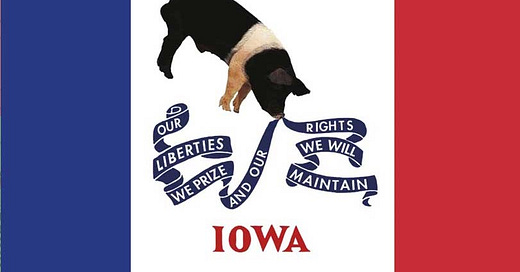He Told the Truth About Iowa’s Polluted Water and Then He Lost His Job
An interview with Chris Jones about the truth and the environment
For eight years, Chris Jones worked as a research engineer at the Iowa Institute of Hydraulic Research, part of the University of Iowa, and had a blog hosted on the university's website. There, he wrote with immediacy and emotion about water quality and agricultural issues. In a post about water and social justice, published in 2022, Jones wrote, “Our w…



